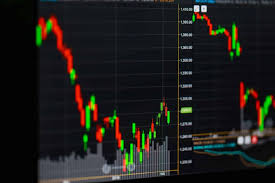
AI-Driven Forex Trading: Revolutionizing the Investment Landscape
In the fast-evolving world of finance, Forex trading has always stood out as one of the most dynamic sectors. The advent of technology has facilitated the evolution of trading strategies, and with the integration of Artificial Intelligence (AI), the Forex market is undergoing a significant transformation. Today, traders can leverage AI tools to enhance their trading capabilities, making informed decisions swiftly. Moreover, for those interested in ethical trading, it’s worth exploring ai forex trading Top Sharia Forex Platforms to align investment practices with Islamic principles.
Understanding AI in Forex Trading
Artificial Intelligence refers to the simulation of human intelligence in machines programmed to think and learn. In Forex trading, AI encompasses everything from algorithms that analyze market trends and price movements to advanced neural networks that can predict future market behavior. The use of AI is not just about automating trades; it’s about enhancing the analytical capabilities of traders and enabling them to make data-driven decisions.
How AI Enhances Forex Trading
AI enhances Forex trading in several crucial ways:
1. Data Analysis
Forex trading generates a vast amount of data every second. AI algorithms can process this data at an unprecedented speed, analyzing historical trends, news feeds, and market indicators. This real-time analysis allows traders to identify patterns and make trades with higher probabilities of success.
2. Automated Trading
AI enables automated trading systems that execute trades based on predefined algorithms. These systems can react instantly to market changes without the emotional bias that often affects human traders. As a result, automation can lead to higher profit margins and reduced losses.
3. Predictive Analytics
AI can leverage historical data to create predictive models. These models help traders anticipate price movements, allowing them to enter or exit trades at optimal times. With continuous learning capabilities, these algorithms can improve their accuracy over time.
4. Risk Management
Effective risk management is critical in Forex trading. AI systems can assess a trader’s portfolio and market conditions to recommend appropriate risk levels and help set stop-loss orders automatically. This helps protect investments from significant losses.
Challenges of Implementing AI in Forex Trading
Despite the numerous advantages AI brings to Forex trading, several challenges need to be addressed:

1. Data Quality
The effectiveness of AI algorithms largely depends on the quality of the data they analyze. Inaccurate or incomplete data can lead to misleading predictions and poor trading decisions.
2. Overfitting
AI models that are too complex may fit historical data exceptionally well but perform poorly in real-time trading scenarios. Developers need to find the right balance between simplicity and complexity in their models.
3. Market Volatility
The Forex market can be incredibly volatile, influenced by geopolitical events, economic reports, and other factors. AI systems must be designed to adapt to sudden market changes effectively.
The Future of AI in Forex Trading
The future of Forex trading is likely to be defined by the integration of AI in various forms. As technology advances, we can expect the following trends:
1. Enhanced Personalization
AI will enable traders to receive more personalized insights and trade recommendations based on their unique trading styles and preferences. This shift will help traders make more informed decisions tailored to their risk profiles.
2. Greater Accessibility
As AI technology becomes more affordable and accessible, retail traders will be able to leverage sophisticated trading tools previously reserved for institutional investors. This democratization of trading technology can lead to an influx of new participants in the Forex market.
3. Increased Regulations
With the rise of AI-driven trading, regulatory bodies will need to establish new guidelines to ensure fair and ethical practices in the market. Transparency in AI algorithms and their decision-making processes will be paramount to maintain market integrity.
Conclusion
The integration of AI into Forex trading is poised to revolutionize the industry, offering unparalleled advantages in data analysis, automated trading, predictive capabilities, and risk management. While challenges exist, the potential rewards make it an exciting time to be involved in Forex trading. As technology continues to advance, traders who embrace AI tools and techniques will likely find themselves at a competitive advantage in this dynamic marketplace.
Whether you are a seasoned trader or a newcomer trying to make sense of the Forex market, understanding and leveraging AI’s capabilities could be the key to unlocking new opportunities and achieving greater success in your trading endeavors.


